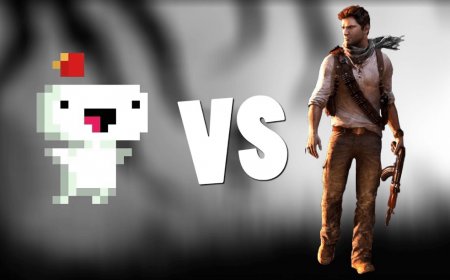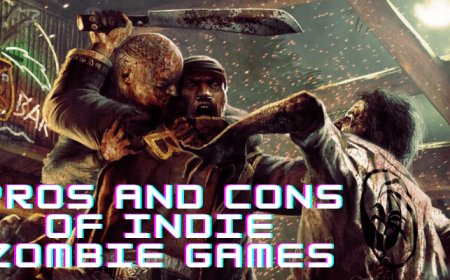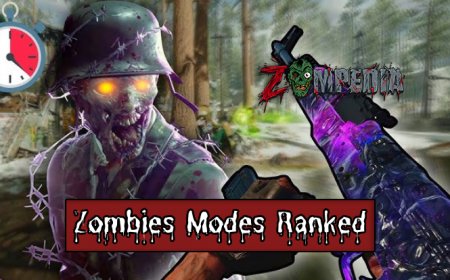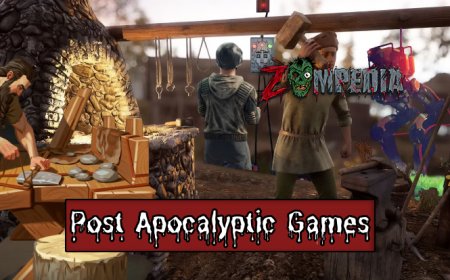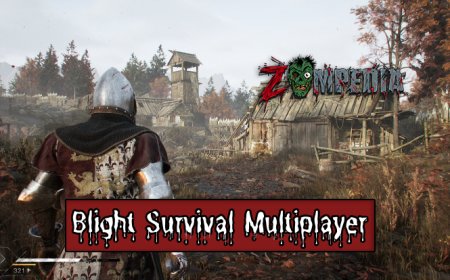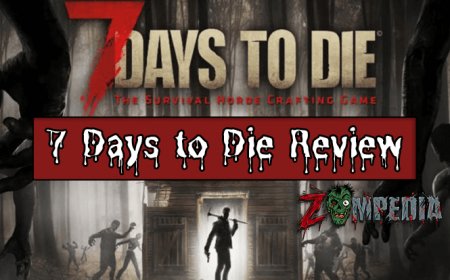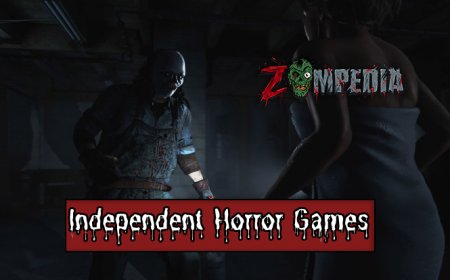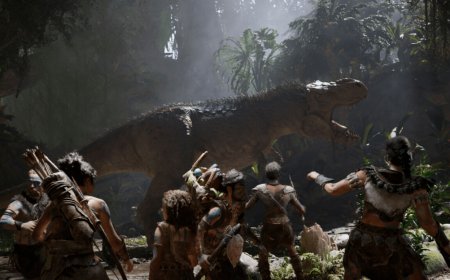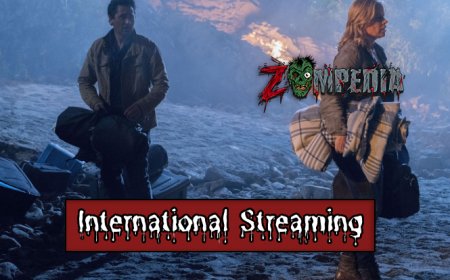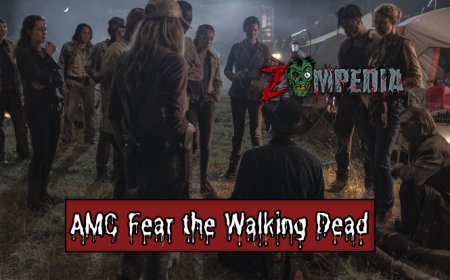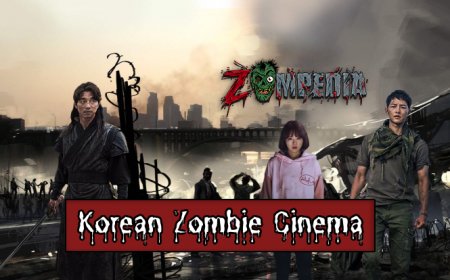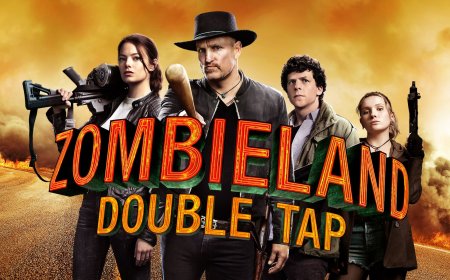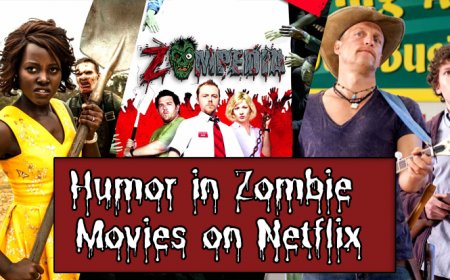Evolution of Zombie Series: From the Origins to the Modern Era
Explore the fascinating history of zombie series through the decades, from their beginnings to their popularity in contemporary television and games.

In the realm of entertainment, few genres have captured the imagination of audiences quite like zombie series. From their humble beginnings in film and literature to their widespread popularity in contemporary television shows and video games, zombie series have a rich history and a lasting impact on pop culture. This article takes a deep dive into the evolution of zombie series, exploring their transformation through the decades and what lies ahead for this ever-changing genre.
Table of Contents
- Early Beginnings of Zombie Series
- Rise of Zombie Series in the 80s and 90s
- The Golden Age of Zombies: 2000s and Beyond
- Zombie Series in Gaming
- Impact of Zombie Series on Popular Media and Culture
1. Early Beginnings of Zombie Series

The concept of zombies dates back centuries, with cultural roots in Haitian folklore and African traditions. However, the first appearances of zombies in films and literature can be traced to White Zombie (1932) starring Bela Lugosi, and George A. Romero's iconic Night of the Living Dead (1968). These seminal works laid the foundation for the modern zombie series, with Romero's film in particular being regarded as the progenitor of the genre.
In the late 1970s and early 1980s, Italian director Lucio Fulci contributed to the growing popularity of zombie films with his "Gates of Hell" trilogy and the notorious Zombi 2 (1979).
2. Rise of Zombie Series in the 80s and 90s
Zombies continued to proliferate in film and television throughout the 1980s and 90s. The introduction of new special effects technologies and practical makeup techniques allowed filmmakers to present gory, grotesque, and incredibly realistic zombie creatures on screen. Key films that helped drive the genre's popularity during this period include:
- Day of the Dead (1985) – The third installment in George A. Romero's classic series.
- Return of the Living Dead (1985) – A horror-comedy that introduced the concept of “fast zombies” and zombies craving brains.
- Re-Animator (1985) – A cult classic film adaptation of H.P. Lovecraft's work.
In addition to films, the late 1980s and 1990s saw the growth of zombie series in comic books and graphic novels, most notably “The Crow” by James O'Barr and the horror anthology “The Sandman” by Neil Gaiman. Both of these series had zombies as recurring characters and themes.
3. The Golden Age of Zombies: 2000s and Beyond
The new millennium marked the beginning of the Golden Age of Zombies with countless new series emerging on television, streaming platforms, and in cinemas. As the new media landscape continued to evolve, so too did the approach to storytelling in zombie series. Some of the most influential and groundbreaking series of this era include:

- The Walking Dead (2010–present) – Developed by Frank Darabont, this adaptation of Robert Kirkman's comic book series quickly became a pop culture phenomenon. The series has since spawned multiple spin-offs and even a video game.
- 28 Days Later (2002) – Directed by Danny Boyle, this film introduced a new, more dangerous type of zombie: the fast-running "infected."
- Zombieland (2009) – A successful horror-comedy film that mixed humor, gore, and character-driven storytelling.
- World War Z (2013) – Based on the novel by Max Brooks, this film presented a global-scale zombie outbreak and provided a fresh perspective on the genre.
These series and many others turned the zombie genre into a mainstream sensation, with viewers around the world captivated by the struggles of survivors in a zombie-infested world.
4. Zombie Series in Gaming
As zombie series grew in popularity on screen, so too did their presence in the world of video games. Since the 1990s, gaming has played a significant role in the evolution of the zombie genre, with countless titles offering players the opportunity to battle hordes of the undead. Some of the most noteworthy zombie games include:
- Resident Evil (1996–present) – This highly successful gaming franchise, known as Biohazard in Japan, combines survival horror elements with action-packed gameplay. The series has since been adapted into successful films, animated works, novels, and comic books.
- Left 4 Dead (2008) – A cooperative first-person shooter game developed by Valve, famous for its intense gameplay, dynamic AI, and memorable cast of characters.
- Dead Rising (2006–present) – An open-world survival horror series with a focus on creative weapon construction and zombie-slaying fun.
These games and many others helped establish the enduring appeal of zombie games, with each new title introducing innovative mechanics, engrossing narratives, and unforgettable characters.
5. Impact of Zombie Series on Popular Media and Culture
Zombie series have reached far beyond the realms of film, television, and gaming, making their mark on various forms of media and popular culture. The undead have found their place in:
- Modern music: Bands such as Misfits, White Zombie, and even Michael Jackson's iconic "Thriller" have all incorporated zombie themes in their work.
- Art and literature: Countless novels, graphic novels, and visual artworks have focused on the concept of zombies, their symbolism, and their impact on society.
- Fashion: Zombie-inspired clothing and make-up have become popular trends, especially during Halloween and at fan conventions.
These various forms of expression demonstrate how deeply rooted the zombie genre is within our culture, continuously revitalizing its appeal to new audiences.
6. The Future of Zombie Series
As the world of entertainment continues to evolve, there is no doubt that the zombie genre will continue to thrive alongside it. Upcoming zombie series and anticipated releases are:
- The Walking Dead spin-offs and future seasons
- New entries in popular video game franchises, such as Resident Evil
- Potential film adaptations of popular zombie novels and comic book series
Beyond these releases, the future of the zombie genre will likely see the development of new trends and innovations, from virtual reality experiences to immersive theatre productions, ensuring that the appetite for zombie-based entertainment remains insatiable.
7. Adaptations and Spin-offs in Zombie Series
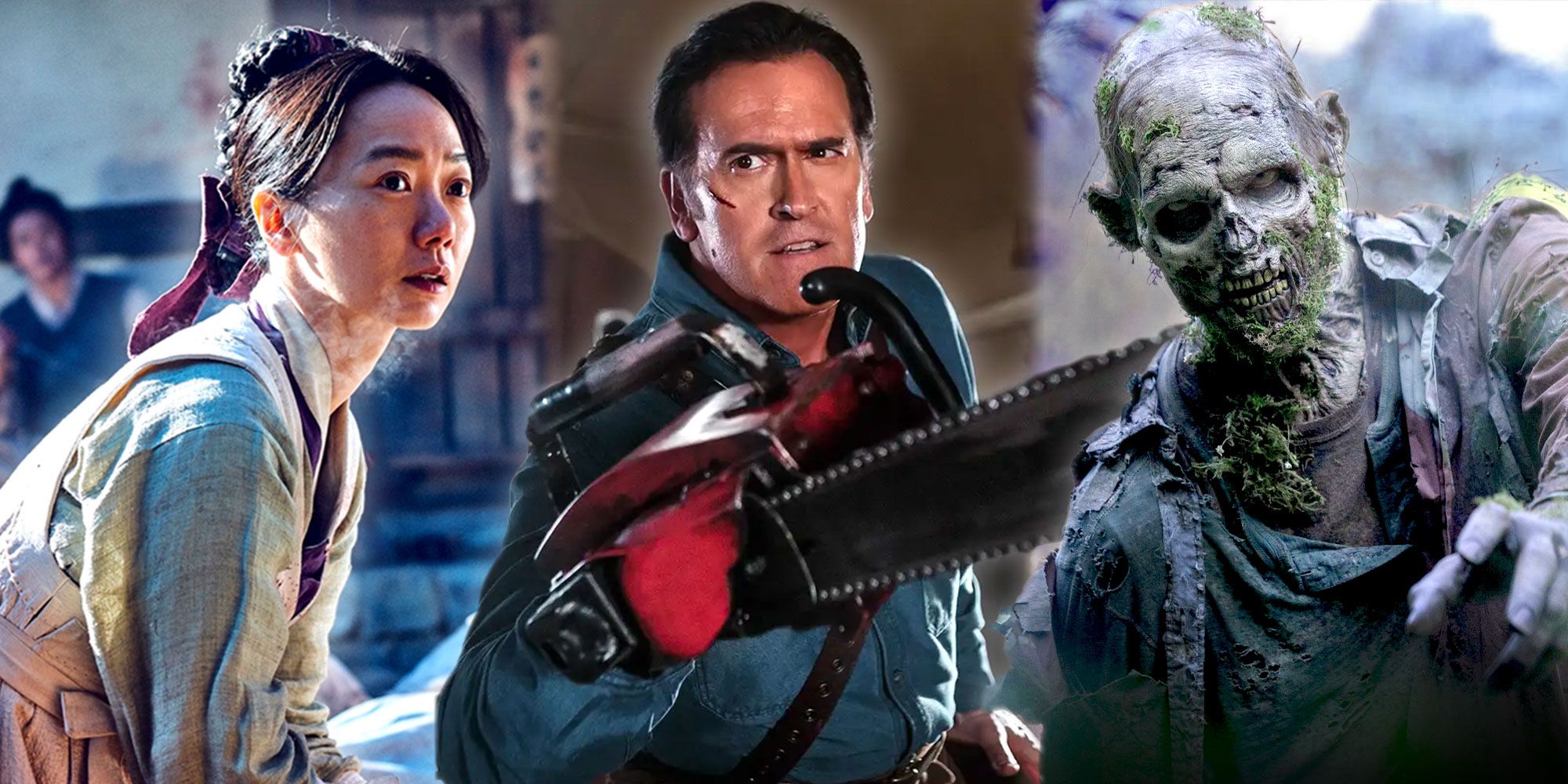
As the popularity of zombie series has grown, numerous adaptations and spin-offs have emerged. This has resulted in movies, TV shows, and games that have taken on a life of their own while maintaining connections to the original series. Examples of this phenomenon include:
- The Resident Evil series, which has spawned multiple films, animated works, novels, and comic books.
- Fear the Walking Dead, a spin-off of The Walking Dead that tells the story of a new group of survivors.
- World War Z the game, an adaptation of the movie and novel of the same name, offering a fresh gameplay experience based on the source material.
These adaptations and spin-offs demonstrate the vast potential for fresh storytelling within the zombie series genre.
8. International Zombie Series
Zombie series are not limited to Hollywood and the Western world; they have made an impact worldwide, showcasing diverse global perspectives on the genre. Notable international zombie series include:
- Train to Busan (2016): A Korean zombie movie that rapidly gained international acclaim for its intense action, strong storyline, and memorable characters.
- Kingdom (2019–present): A South Korean Netflix series that combines historical drama with a zombie apocalypse, providing a unique setting in which to explore the undead.
- La Horde (2009): A French zombie movie that follows a group of police officers and criminals as they band together to survive a zombie-infested building.
As the popularity of the zombie genre continues to spread globally, audiences can look forward to even more diverse stories, settings, and innovations.
9. The Role of Survival Strategies in Zombie Series
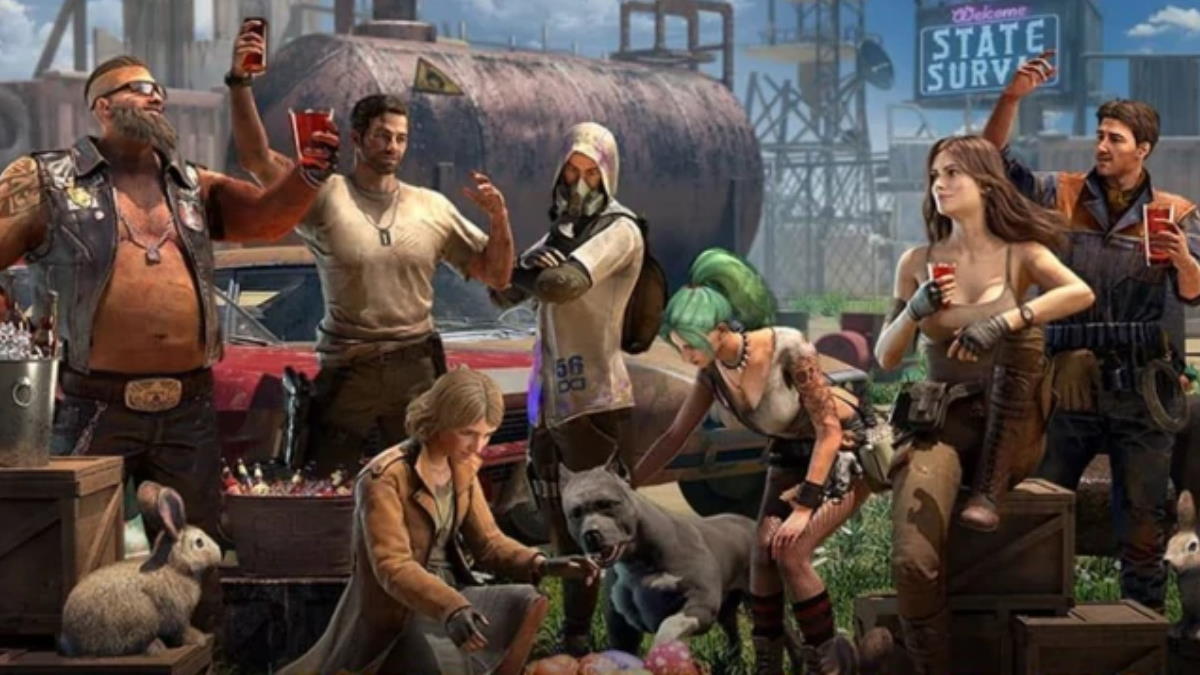
At the heart of many zombie series is the concept of survival. As viewers or players, we are drawn to the challenges faced by the characters as they struggle to navigate a world overrun by the undead. The role of survival strategies in zombie series includes:
- Resource management and decision-making under pressure
- Creating alliances, relationships, and communities for mutual protection
- Exploring the moral complexities of survival
Different series emphasize and portray survival in unique ways, from intense survival-horror gameplay to complex narratives involving societal collapse and rebuilding.
10. Evolution of Zombie Types and Characteristics
As the zombie genre has evolved, so too have the creatures themselves. The portrayal of zombies in various series has changed throughout the years to include:
- Slow-moving Romero-style zombies in the early films
- Fast-running "infected" in movies like 28 Days Later
- Zombies with unique abilities or mutations in games such as Left 4 Dead and Resident Evil
These distinct types of zombies help keep the genre fresh and provide new challenges for the characters and audiences to contend with.
11. Analysis of Iconic Zombie Series Moments

Some of the most memorable moments in zombie series come from carefully crafted scenes, unexpected plot twists, and suspenseful developments. These moments often reveal deeper social commentary and explore themes such as humanity, survival, and morality. Examples of iconic moments from various zombie series include:
- The surprise ending of Night of the Living Dead, which introduced the horror of a zombie apocalypse to audiences for the first time.
- The tense confrontation at Terminus in The Walking Dead, where trust and survival collide with gruesome consequences.
- The dramatic bridge scene in Train to Busan, in which characters must make split-second decisions under tremendous pressure.
These moments leave lasting impressions on audiences and help define the ongoing legacy of the zombie series genre.
12. The Zombie Series Community
Fandoms, conventions, and online communities play a significant role in the ongoing success of the zombie series genre. Fans share their love for the genre by creating fan fiction, art, and other expressions, while online forums and social media groups foster discussions and resource sharing. Notable conventions, such as Walker Stalker Con, allow fans to meet cast members, attend panels, and immerse themselves in the universe of their favorite series.
13. Conclusion
From the early beginnings of the zombie genre in cinema through decades of innovation and evolution, zombie series have left an indelible mark on entertainment and popular culture. As the genre continues to expand into new territories and formats, one thing is clear: the hunger for zombie-based entertainment remains unsatiated, and we can expect many more thrilling and captivating zombie series to grace our screens and gaming platforms in the future.
What's Your Reaction?

























